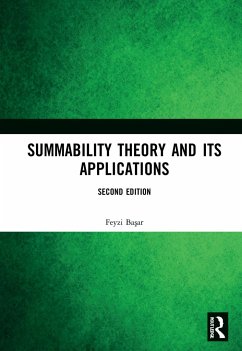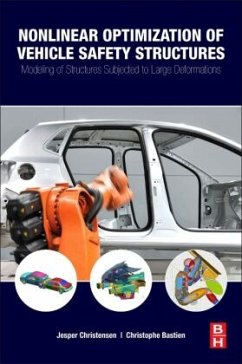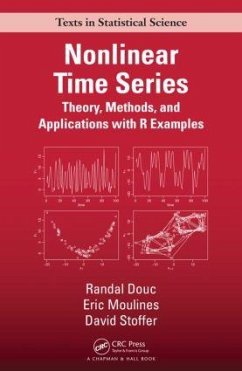
Nonlinear Systems and Their Remarkable Mathematical Structures
Volume 3, Contributions from China
Herausgegeben: Euler, Norbert; Zhang, Da-jun
Versandkostenfrei!
Versandfertig in 6-10 Tagen
79,99 €
inkl. MwSt.
Weitere Ausgaben:

PAYBACK Punkte
40 °P sammeln!
The third volume in this sequence of books consists of a collection of contributions that aims to describe the recent progress in nonlinear differential equations and nonlinear dynamical systems (both continuous and discrete). Nonlinear Systems and Their Remarkable Mathematical Structures: Volume 3, Contributions from China just like the first two volumes, consists of contributions by world-leading experts in the subject of nonlinear systems, but in this instance only featuring contributions by leading Chinese scientists who also work in China (in some cases in collaboration with western scien...
The third volume in this sequence of books consists of a collection of contributions that aims to describe the recent progress in nonlinear differential equations and nonlinear dynamical systems (both continuous and discrete). Nonlinear Systems and Their Remarkable Mathematical Structures: Volume 3, Contributions from China just like the first two volumes, consists of contributions by world-leading experts in the subject of nonlinear systems, but in this instance only featuring contributions by leading Chinese scientists who also work in China (in some cases in collaboration with western scientists).
Features
Clearly illustrate the mathematical theories of nonlinear systems and its progress to both the non-expert and active researchers in this area .
Suitable for graduate students in Mathematics, Applied Mathematics and some of the Engineering Sciences.
Written in a careful pedagogical manner by those experts who have been involved in the research themselves, and each contribution is reasonably self-contained.
Features
Clearly illustrate the mathematical theories of nonlinear systems and its progress to both the non-expert and active researchers in this area .
Suitable for graduate students in Mathematics, Applied Mathematics and some of the Engineering Sciences.
Written in a careful pedagogical manner by those experts who have been involved in the research themselves, and each contribution is reasonably self-contained.














